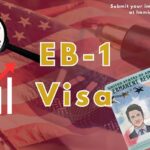New Leadership: New EB-1A Trends
How to reach us?
https://immigrationvisaattorney.com/contact-us or 614-791-0500
Want your immigration question answered in our next live stream?
Submit it now at ImmigrationQuestions.US, and you might be featured!
We discuss the EB-1A process under the Trump administration. We will unpack the latest trends and indications from the new administration on the coveted “extraordinary ability” path to a green card. Afterwards, we will host a live Q&A session with listeners.
Table of Contents
Introduction to EB-1A
- The presentation begins with a greeting and the announcement of the topic, which is the EB-1A employment-based extraordinary ability application in 2025.
- Sam Shihab and Brian Burke from the law firm Shihab Burke are the presenters, discussing the current state of immigration law and the EB-1A application process.
- They note that there are significant changes expected under the new administration compared to the previous one.
Current State of Immigration Law
- The presenters emphasize that the core immigration laws governing the EB-1A application have not changed significantly in the past two decades.
- However, they highlight that the decision-makers within immigration agencies have changed, influencing how applications are evaluated.
- There is an expectation that the criteria for EB-1A applications will become stricter, moving away from the relaxed standards seen during the Biden administration.
Changes in Criteria and Evidence Requirements
- The presenters discuss the shift towards requiring more objective evidence in EB-1A applications, moving away from subjective testimonials.
- They advise applicants to provide quantifiable achievements, such as financial metrics or industry rankings, to support their claims of extraordinary ability.
- For instance, rather than relying on letters of recommendation, applicants should include data demonstrating the impact of their work, such as sales figures or usage statistics of a product.
Impact of Administration Changes on EB-1A Applications
- The presenters outline how the Biden administration allowed for more flexibility in the evaluation of awards and achievements, which they predict will be tightened under the new administration.
- They provide examples of how awards from within a company may not be viewed as favorably as those from external industry organizations.
- The presenters note that the emphasis will likely shift towards demonstrating a leading role in an organization or industry, requiring applicants to substantiate their claims with robust evidence.
Totality of Circumstances Analysis
- The discussion includes the concept of a totality of circumstances analysis applied by USCIS when reviewing EB-1A applications.
- This analysis considers whether an applicant genuinely meets the definition of extraordinary ability based on a combination of criteria, including published work and salary levels.
- The presenters stress that meeting at least three of the ten criteria is essential but that the overall impression of the applicant’s impact in their field is crucial for approval.
Importance of Objective Evidence
- The presenters reiterate the necessity for objective evidence in support of EB-1A applications, emphasizing that subjective endorsements are less likely to be persuasive.
- They suggest focusing on factual achievements, such as industry rankings and financial success, rather than personal testimonials.
- They also highlight the importance of marketing materials and third-party validations to strengthen an application.
Challenges with Recommendation Letters
- The presenters discuss the evolving role of recommendation letters in the EB-1A process, which should now emphasize quantifiable impacts rather than personal accolades.
- They caution that relying solely on letters can weaken a case, as they may be perceived as self-serving.
- Instead, they recommend incorporating more substantial evidence of achievements to support the claims made in these letters.
RFEs and Application Strategy
- The presenters address the increased frequency of Requests for Evidence (RFEs) in the current immigration climate and the strategic decisions surrounding them.
- They debate whether to hold back evidence for potential RFEs or to submit all available evidence upfront to strengthen the initial application.
- They suggest that addressing RFEs can provide an opportunity to clarify and refine arguments based on the government’s feedback.
Conclusion on Relatability and Impact
- The presenters conclude by emphasizing the importance of relatability in an EB-1A application, noting that if the work is not easily understood, it may not resonate with the reviewing officers.
- They assert that making the work relatable to common experiences or well-known technologies can enhance the chances of approval.
- The discussion ends with a reminder that while the criteria may evolve, the fundamental need for relatability and clear demonstration of impact remains constant.
Q&A Session
- Brian returns to address live questions from the audience, emphasizing that the responses are general and not a substitute for personalized legal advice.
- He discusses various immigration topics, including the use of EADs, AR11 filing requirements, and visitor visa applications.
- Brian stresses the importance of consulting with an immigration attorney for serious issues and clarifies common misconceptions regarding immigration processes.
Author Profile
Latest entries
 H-1B VisaAugust 22, 2025New Leadership: New EB-1A Trends
H-1B VisaAugust 22, 2025New Leadership: New EB-1A Trends H-1B VisaAugust 13, 2025End of Visa Interview Waivers: What H-1B & Other Visa Holders Need to Know
H-1B VisaAugust 13, 2025End of Visa Interview Waivers: What H-1B & Other Visa Holders Need to Know Family ImmigrationAugust 11, 2025USCIS Narrows CSPA Applicability
Family ImmigrationAugust 11, 2025USCIS Narrows CSPA Applicability H-1B VisaAugust 4, 2025USCIS Interview Tips for Employment Visas
H-1B VisaAugust 4, 2025USCIS Interview Tips for Employment Visas






